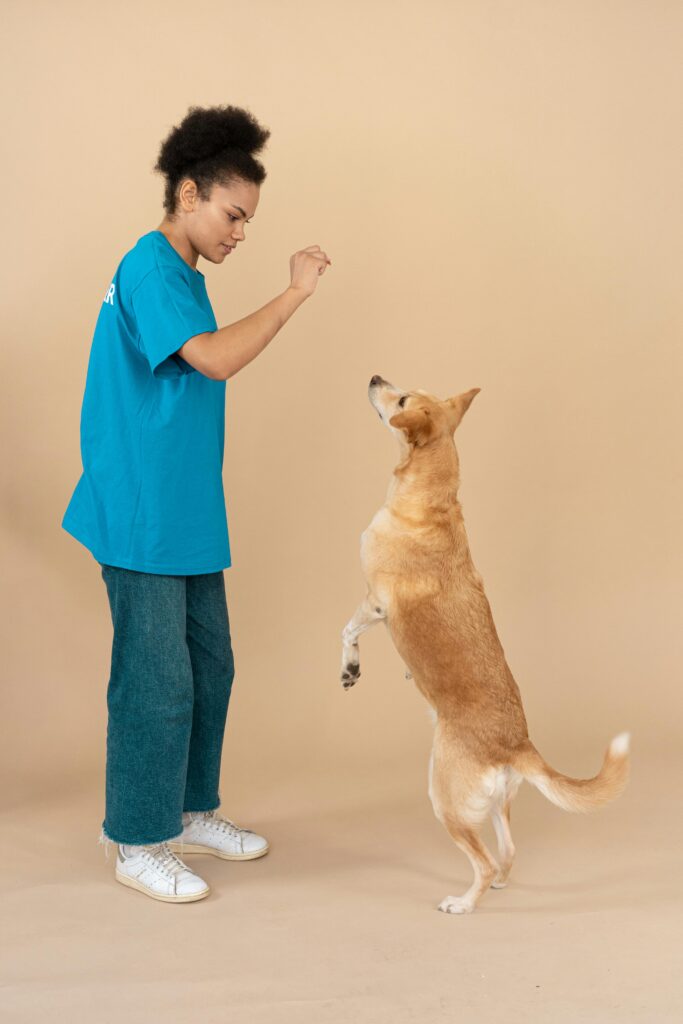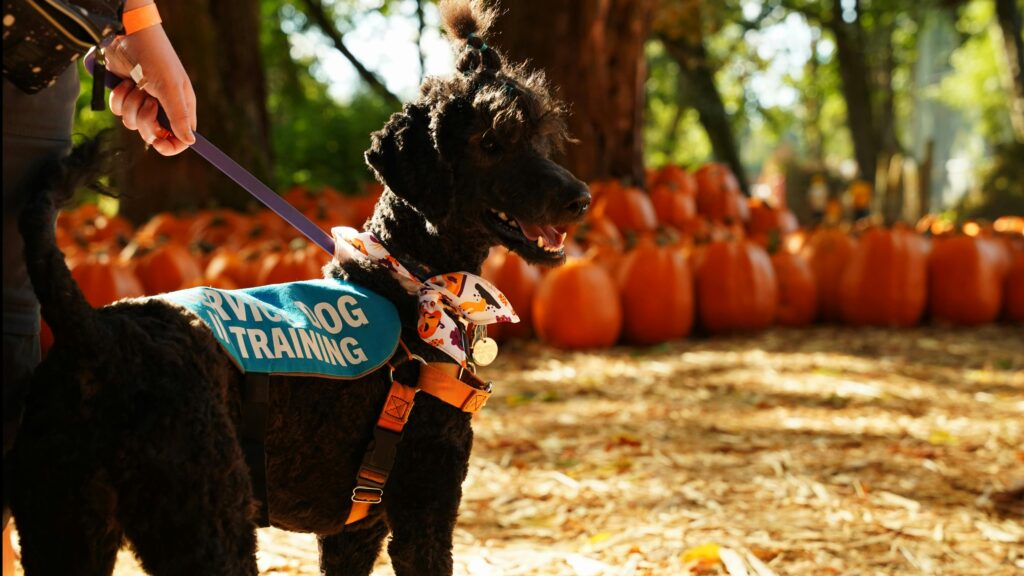Obedience training is not something you finish and forget. It is an ongoing process that changes as your dog grows and matures. From a curious puppy to a mellow senior, each life stage comes with its own training needs and challenges. The key to long-term success is understanding how to adapt your approach at every step.
As a professional trainer, I have seen firsthand that the most well-behaved dogs are those whose owners commit to lifelong learning. In this guide, we will walk through the stages of life, explore essential skills for each, and share practical ways to reinforce training no matter how old your dog is.

Stage One: Puppyhood (8 Weeks to 6 Months)
The Foundation of Learning
The puppy stage is a critical window for socialization and basic obedience. Puppies are naturally curious and eager to learn. This is the time to introduce them to the world in a safe and structured way.
Key Skills to Teach:
- Name recognition
- Sit, down, stay
- Recall (“come”)
- Crate training
- Leash introduction
Early training should be positive, consistent, and short to match their attention span. Short, fun sessions are far more effective than long, drawn-out lessons.
Pro Tip: This is also the ideal time to focus on early socialization. The AKC outlines why early socialization is a must for preventing fear-based behaviors later in life.
Stage Two: Adolescence (6 Months to 2 Years)
Testing Boundaries
If puppyhood is the honeymoon, adolescence is the test. Hormonal changes, increased energy, and growing confidence mean your dog may begin challenging boundaries.
Training Focus:
- Reinforce existing commands
- Leash manners to prevent pulling
- Impulse control (stay, leave it, wait)
- Continued socialization in new environments
Many owners notice more distractions at this stage. Our article on how summer weather affects dog training progress shares insight into how environmental changes can also influence behavior, which is especially relevant for young, energetic dogs.
Stage Three: Adulthood (2 to 7 Years)
Building Reliability
By adulthood, your dog should have a solid understanding of basic obedience. Now is the time to refine skills, improve reliability, and challenge them mentally.
Training Ideas for Adults:
- Off-leash recall
- Long-distance stays
- Heel in high-distraction environments
- Advanced tricks or sport training
Mental stimulation is as important as physical exercise. Teaching new skills keeps your dog’s mind active and helps prevent boredom-related issues.
Stage Four: Senior Years (7+ Years)
Adjusting for Comfort and Ability
Senior dogs can still learn new skills, but training should accommodate their physical limitations. Use lower-impact exercises and shorter sessions, and focus on reinforcing existing commands.
Senior Dog Training Tips:
- Use softer treats for sensitive teeth
- Keep sessions short but consistent
- Avoid physically demanding commands if mobility is limited
- Practice “stay” and “come” to maintain safety
Older dogs often excel at training because they are calmer and more focused.
Core Principles for Every Stage
Regardless of age, these principles apply to all training:
- Consistency is everything. Dogs thrive on routine and clear expectations.
- Positive reinforcement works. Rewarding desired behavior is more effective than punishing mistakes.
- Short and frequent beats long and rare. Even 5 minutes daily is better than one long session a week.
- Train in different environments. A dog who listens only at home is not fully trained.
- Make training part of daily life. Incorporate obedience into everyday activities like feeding, walks, and playtime.
Tools and Resources for Success
- Clickers for marking behaviors
- Treat pouches for quick rewards
- Leashes and harnesses suited to your dog’s size and activity level
- Place beds for teaching the “place” command
- Interactive toys for mental engagement
For leash-related challenges, PetMD’s guide on how to stop your dog from pulling on leash is an excellent resource.
When to Seek Professional Help
Some challenges require expert guidance. Whether you are dealing with reactivity, pulling, or unreliable recall, a structured training program can help. Our Basic & Advanced Obedience Program is designed to build a reliable foundation and refine skills for dogs at every stage of life.
Final Thoughts
Obedience training is not just about commands. It is about communication, trust, and building a relationship that lasts a lifetime. By adjusting your training to match your dog’s age and abilities, you ensure they remain well-mannered, confident, and happy through every stage of life.
At Off Leash K9 Training: Columbus, we specialize in creating personalized training plans for dogs of all ages.
Reach out today to get started.

